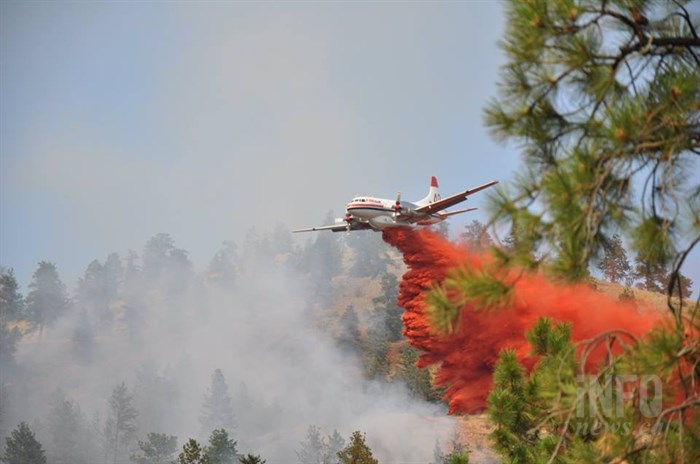
Image Credit: FILE PHOTO
September 09, 2016 - 1:00 PM
THOMPSON-OKANAGAN - The province has underspent it's wildfire budget this year for the first time in years.
New equipment and a cool, wet summer has saved Victoria more than $140 million compared to last year's wildfire season.
Provincial wildfire information officer Kevin Skrepnek says the province has spent an estimated $112 million on fighting wildfires this year.
"If you were to compare it to this date in 2015, it was quite a bit higher," Skrepnek says. "It was $257 million."
The yearly allocation for provincial wildfire services is $63 million, which Skrepnek says is a very conservative figure since it's difficult to forecast the season ahead of time.
Skrepnek says it's been a fairly quiet summer with less activity than crews are used to.
"So much of our business is driven by the weather. We certainly have had a quieter than normal season."
Skrepnek says it's hard to predict how severe a wildfire season will be, which makes it challenging for crews to do things differently from year to year.
The province also saved money because there were no really huge wildfires this year.
"Given that it was a relatively slow season, we didn't have to bring in crews from elsewhere," Skrepnek says.
B.C. Wildfire Service has introduced new equipment which Skrepnek says has helped crews understand the fires better.
He says they did a trial run with a new type of aircraft this year. A jet-powered air tanker.
“Another area we’ve been exploring a little bit more… is using drones. Mainly for mapping fires," he says.
Skrepnek says crews were able to detect hotspots with the thermal imaging camera on the drones to better monitor fires in the mop-up stage.
Another perk of using drones is they are able to fly at night, something helicopters can't do because of safety considerations for their human pilots.
He says the drones are able to capture aerial pictures of the size and area of the fire at night, which are then passed on to crews first thing in the morning. They can see new features in the images they couldn't see before. So with fewer helicopter flights and the ability to focus resources more accurately in the fight against a fire, money was saved.
To contact a reporter for this story, email Ashley Legassic or call 250-319-7494 or email the editor. You can also submit photos, videos or news tips to the newsroom and be entered to win a monthly prize draw.
We welcome your comments and opinions on our stories but play nice. We won't censor or delete comments unless they contain off-topic statements or links, unnecessary vulgarity, false facts, spam or obviously fake profiles. If you have any concerns about what you see in comments, email the editor in the link above.
News from © iNFOnews, 2016